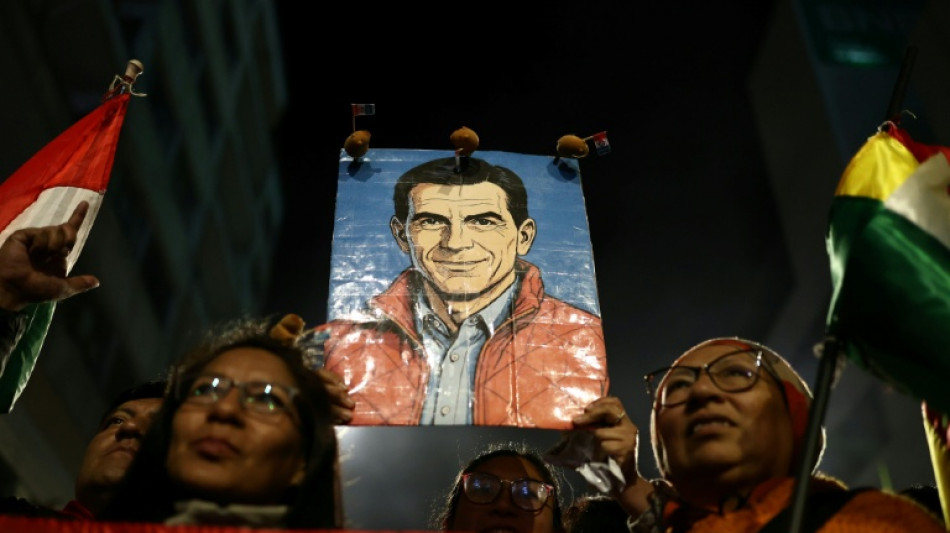
-
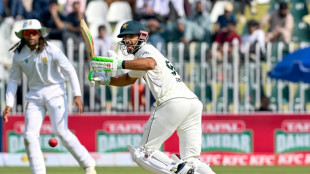 Pakistan ride luck to reach 177-3 in second South Africa Test
Pakistan ride luck to reach 177-3 in second South Africa Test
-
Dembele set for PSG return after six weeks out

-
 US envoys in Israel to shore up Gaza plan
US envoys in Israel to shore up Gaza plan
-
Cargo plane skids off Hong Kong runway, kills 2

-
 Amazon's cloud services hit by global outage
Amazon's cloud services hit by global outage
-
China posts lacklustre Q3 economic data as key Beijing conclave starts
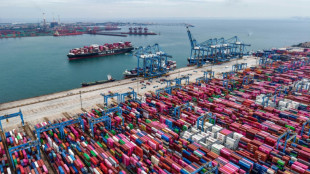
-
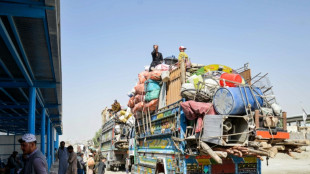 'People can breathe': hope for peace on Afghan-Pakistan border
'People can breathe': hope for peace on Afghan-Pakistan border
-
Louvre closes for second day as France hunts jewel thieves
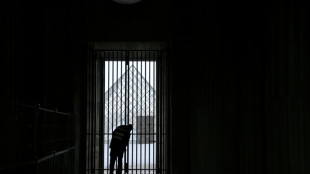
-
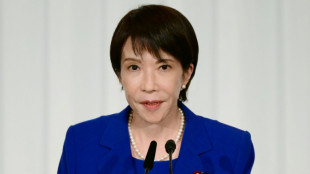 Japan coalition deal paves way for Takaichi to be first woman PM
Japan coalition deal paves way for Takaichi to be first woman PM
-
England hammer New Zealand after Brook and Salt onslaught
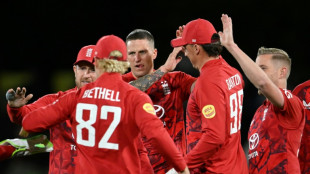
-
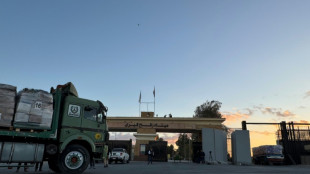 Five things to know about Gaza's Rafah border crossing
Five things to know about Gaza's Rafah border crossing
-
Thyssenkrupp spins off warship unit to tap defence boom
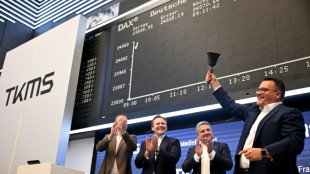
-
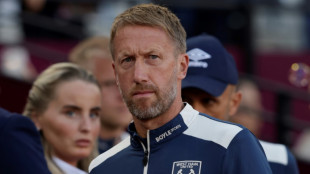 Sweden names ex-Chelsea manager Graham Potter new coach
Sweden names ex-Chelsea manager Graham Potter new coach
-
Kering shares jump on sale of beauty division to L'Oreal

-
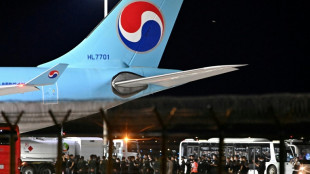 10 South Koreans arrested, two rescued in Cambodia scam crackdown
10 South Koreans arrested, two rescued in Cambodia scam crackdown
-
Stock markets bounce back as China-US trade fears ease
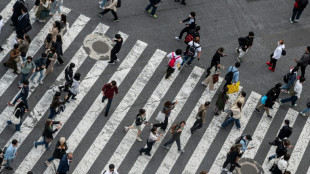
-
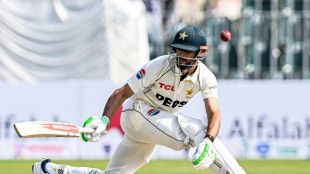 Pakistan 95-1 at lunch in second South Africa Test
Pakistan 95-1 at lunch in second South Africa Test
-
Bolivia's new president faces worst economic crisis in decades
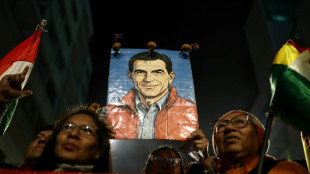
-
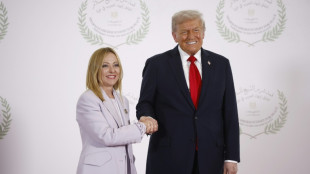 Serious, popular, besties with Trump: Italy's Meloni marks three years
Serious, popular, besties with Trump: Italy's Meloni marks three years
-
In the Sahel, no reprieve under jihadist blockade
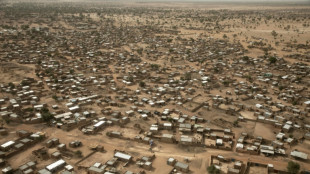
-
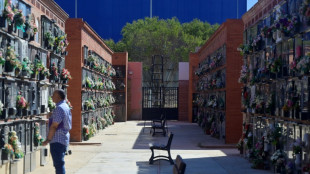 One year on, Spain's flood survivors rebuild and remember
One year on, Spain's flood survivors rebuild and remember
-
Cargo plane skids off Hong Kong runway, kills two

-
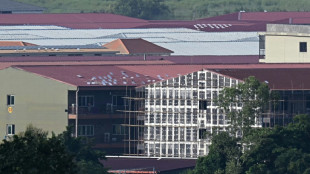 Myanmar junta says seized 30 Starlink receivers in scam centre raid
Myanmar junta says seized 30 Starlink receivers in scam centre raid
-
Japan set for new coalition and first woman PM
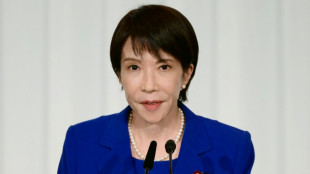
-
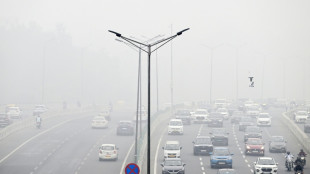 Toxic haze chokes Indian capital
Toxic haze chokes Indian capital
-
Flood reckoning for Bali on overdevelopment, waste
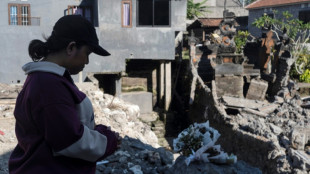
-
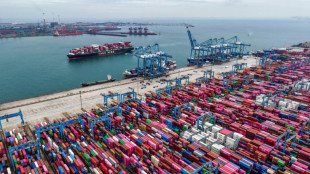 China's economic growth slows amid sputtering domestic demand
China's economic growth slows amid sputtering domestic demand
-
Atletico aim to convince Alvarez they belong among elite on Arsenal visit

-
 Rebuilding Leverkusen wary of world's best PSG
Rebuilding Leverkusen wary of world's best PSG
-
French police hunt Louvre jewel thieves
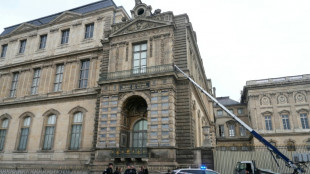
-
 Blue Jays down Mariners to force game seven decider in MLB playoff series
Blue Jays down Mariners to force game seven decider in MLB playoff series
-
Asian markets bounce back as China-US trade fears ease
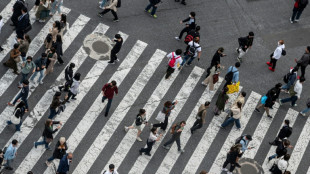
-
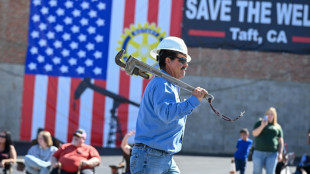 California's oil capital hopes for a renaissance under Trump
California's oil capital hopes for a renaissance under Trump
-
OpenAI big chip orders dwarf its revenues -- for now
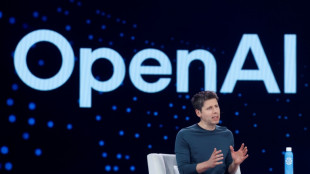
-
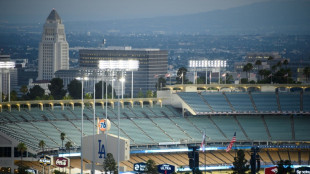 Phony AI content stealing fan attention during baseball playoffs
Phony AI content stealing fan attention during baseball playoffs
-
Haaland, Kane and Mbappe battle to be Europe's best
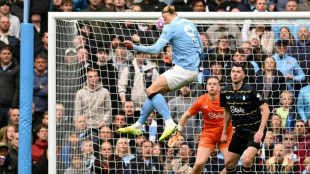
-
 Verstappen makes clear he is gunning for a fifth world title
Verstappen makes clear he is gunning for a fifth world title
-
'Capitalism for all': Rodrigo Paz, Bolivia's ideology-shy president-elect
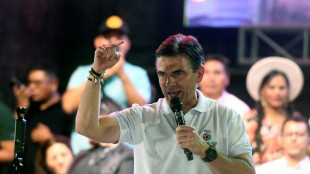
-
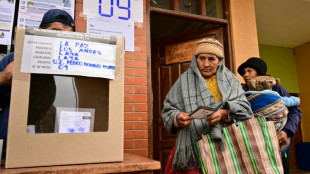 Bolivia elects center-right president, ending two decades of socialism
Bolivia elects center-right president, ending two decades of socialism
-
Torq Announces That Gold Fields Has Elected to Proceed to Stage 2 of Santa Cecilia Project Option USD$11 Million Drilling Program to Start at Santa Cecilia

-
 Investar Holding Corporation Announces 2025 Third Quarter Results and Wichita Falls Bancshares, Inc. Transaction Update
Investar Holding Corporation Announces 2025 Third Quarter Results and Wichita Falls Bancshares, Inc. Transaction Update
-
Zedge To Report Fourth Quarter & End of Fiscal Year 2025 Results

-
 Eagle Plains Announces Agreement with Kodiak for the Ketch and Portland Properties, Nicola District, BC
Eagle Plains Announces Agreement with Kodiak for the Ketch and Portland Properties, Nicola District, BC
-
FIFA 2026 Host City Monterrey Renews with SEVN as Exclusive Media Rights Partner for Legends Match on January 17, 2026

-
 Tocvan Advances Drilling, Trenching, and Pilot Mine Preparation, Mobilizing Equipment to North and South Blocks at Gran Pilar Gold-Silver Project
Tocvan Advances Drilling, Trenching, and Pilot Mine Preparation, Mobilizing Equipment to North and South Blocks at Gran Pilar Gold-Silver Project
-
Genflow Biosciences PLC Announces Recognition of Patentability of Claims

-
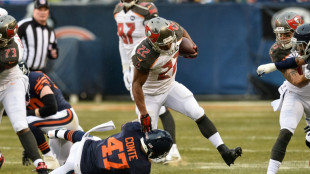 Ex-Buccaneers running back Martin dies at 36
Ex-Buccaneers running back Martin dies at 36
-
NFL Eagles soar over Vikings while Colts improve to 6-1

-
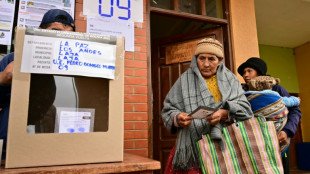 Bolivians look right for a new president, ending two decades of socialism
Bolivians look right for a new president, ending two decades of socialism
-
Frustrated Piastri calls for calm review
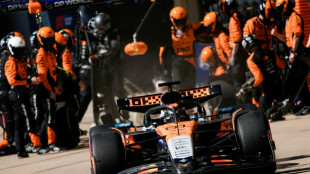

Bolivia's new president faces worst economic crisis in decades
Bolivians elected Rodrigo Paz as president on Sunday, selecting the center-right senator and economist to address the country's worst economic crisis in 40 years.
Paz, 58, campaigned on slashing public spending, especially on fuel subsidies, and vowed a "capitalism for all" approach to economic reform in a marked shift from the preceding two decades of socialist government.
The president-elect, who will assume office on November 8, has promised that his governance style will be one of "consensus," as he hopes to gain public trust in a divided society.
- Economy -
Bolivia is in the grips of an economic crisis, with year-on-year inflation at 23 percent and a chronic shortage of fuel.
One of Paz's main challenges at the start of his tenure will be to find a way out of the fuel crisis and overcome a severe shortage of dollars -- the result of large government subsidies and a decrease in gas exports -- while curbing an uptick in the cost of living.
"Stabilizing the economy will require very firm measures," economist Napoleon Pacheco, a professor at La Paz's San Andres university, told AFP.
But analyst Daniela Osorio of the German Institute for Global and Area Studies warned that such measures "could lead to a social uprising."
- Mistrust -
Maria Teresa Zegada, a sociologist at San Simon university in La Paz, said there was "growing public dissatisfaction with politics."
A breakdown of the results of Sunday's run-off illustrates the divisions in the country, with the more conservative and richer east largely supporting right-wing candidate Jorge Quiroga, while the more impoverished west and its large Indigenous population backed Paz.
Osorio said these trends point to a revival of traditional "divisions between the east and the west, as well as between urban and rural areas."
Maria Choquetapi, a woman from the Aymara Indigenous group, told AFP from her town of Laja west of the capital: "I would like the new government to roll up their sleeves and really get to work, not like their predecessors."
- Parliament -
Paz's party is the biggest in parliament. But with no outright majority, the new president will have to "find agreements" to rule effectively, said Zegada.
The four right-wing parties in Bolivia's parliament will hold 119 of 130 seats in the Chamber of Deputies and all 36 in the Senate.
That means Paz will have to work with some of his political rivals despite painful "wounds" from the run-off campaign, according to Osorio.
- Morales -
Evo Morales, who served as president from 2006 to 2019 and was barred from running again this year, remains popular, especially among Indigenous Bolivians.
He cast a long shadow over the campaign, and in the first round, got nearly one in five voters to spoil their ballot over his exclusion from the election.
But internal divisions in his Movement Towards Socialism party have seen Morales's influence weaken.
The former president is also the target of an arrest warrant for human trafficking over an alleged sexual relationship with a minor -- an accusation he denies.
Analyst Osorio said that even a weaker Morales "remains a destabilizing factor."
Zegada, the sociologist, said that his supporters "have already warned that if the next government does not live up to its promises, they will mobilize to overthrow it."
L.Davis--AMWN